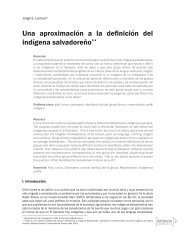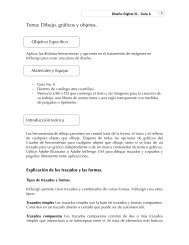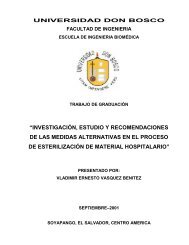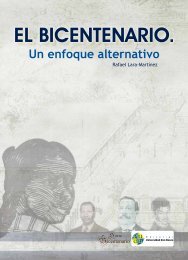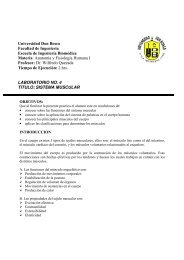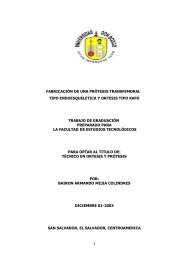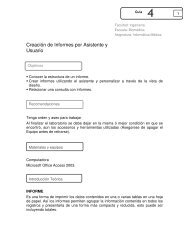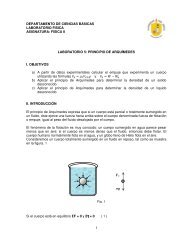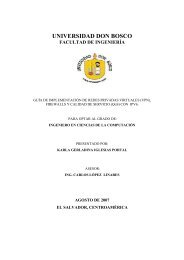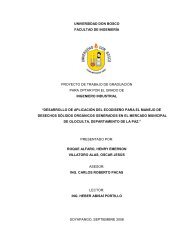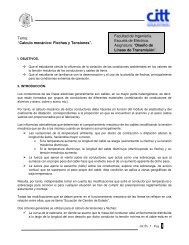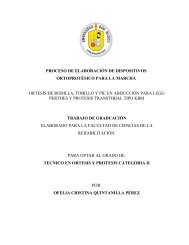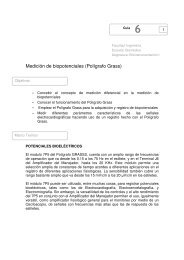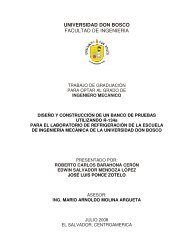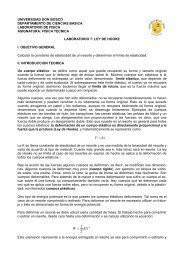cuentos de barro - DSpace Universidad Don Bosco
cuentos de barro - DSpace Universidad Don Bosco
cuentos de barro - DSpace Universidad Don Bosco
Create successful ePaper yourself
Turn your PDF publications into a flip-book with our unique Google optimized e-Paper software.
—¡On<strong>de</strong> te metés, babosada! —pensaba<br />
el indio sin darse por vencido—: Y tei <strong>de</strong><br />
topar, aunque no querrás, así mihaya<br />
<strong>de</strong> tronchar en los surcos.<br />
Y así fue; no lo <strong>de</strong>l encuentro, sino lo <strong>de</strong><br />
la tronchada.<br />
Un día, a la hora en que se ver<strong>de</strong>ya el<br />
cielo y en que los ríos se hacen rayas<br />
blancas en los llanos, José Pashaca se<br />
dio cuenta <strong>de</strong> que ya no había botijas.<br />
Se lo avisó un <strong>de</strong>smayo con calentura;<br />
se dobló en la mancera; los bueyes<br />
se fueron parando, como si la reja se<br />
hubiera enredado en el raizal <strong>de</strong> la<br />
sombra. Los hallaron negros, contra<br />
el cielo claro, “voltiando a ver al indio<br />
embruecado, y resollando el viento<br />
oscuro”.<br />
José Pashaca se puso malo. No quiso<br />
que nai<strong>de</strong>31 lo cuidara. “Den<strong>de</strong>32 que<br />
bía finado la Petrona, vivía íngrimo en su<br />
rancho.”<br />
Una noche, haciendo fuerzas <strong>de</strong> tripas,<br />
salió sigiloso llevando, en un cántaro<br />
viejo, su huaca. Se agachaba <strong>de</strong>trás<br />
<strong>de</strong> los matochos cuando óiba ruidos,<br />
y así se estuvo haciendo un hoyo con<br />
la cuma33 . Se quejaba a ratos, rendido,<br />
pero luego seguía con brío su tarea.<br />
30. Image that is repeated later: sky turns green, not blue.<br />
31. Arcaismo <strong>de</strong> “nadie”.<br />
32. Arcaismo <strong>de</strong> “<strong>de</strong>s<strong>de</strong>”.<br />
33. RAE: cuma. 1. f. Am. Cen. Cuchillo corvo para rozar y podar.<br />
24<br />
“Where is you hiding, stupid thing!”<br />
he thought without giving up: “and I’ll<br />
find you, even though you don’t want<br />
me to, even if I need to break my back<br />
plowing in the furrows.”<br />
And that’s what happened; not the<br />
finding, but the breaking.<br />
One day, at the hour when the sky<br />
turns green 30 and the rivers become<br />
white lines on the plains, José Pashaca<br />
realized that there weren’t any more<br />
botijas. Finally a sign: he broke down<br />
in the field, he fainted with fever. The<br />
oxen slowed down as if the bla<strong>de</strong><br />
became entangled in the roots of the<br />
shadow. They were found silhouetted<br />
by the clear sky, “staring down at the<br />
fallen man who was heavily breathing<br />
the dark wind.”<br />
José Pashaca became very ill. He didn’t<br />
want anyone to take care of him. “He<br />
lived all alone in his shack since Petrona<br />
had died.”<br />
One night, he plucked up his courage.<br />
He went out stealthily carrying<br />
his money in an old clay jug. He<br />
began to dig a hole with his curved<br />
machete. Whenever he heard noises<br />
he ducked down in the bushes. He<br />
moaned at times, exhausted, but with<br />
<strong>de</strong>termination continued his task.



